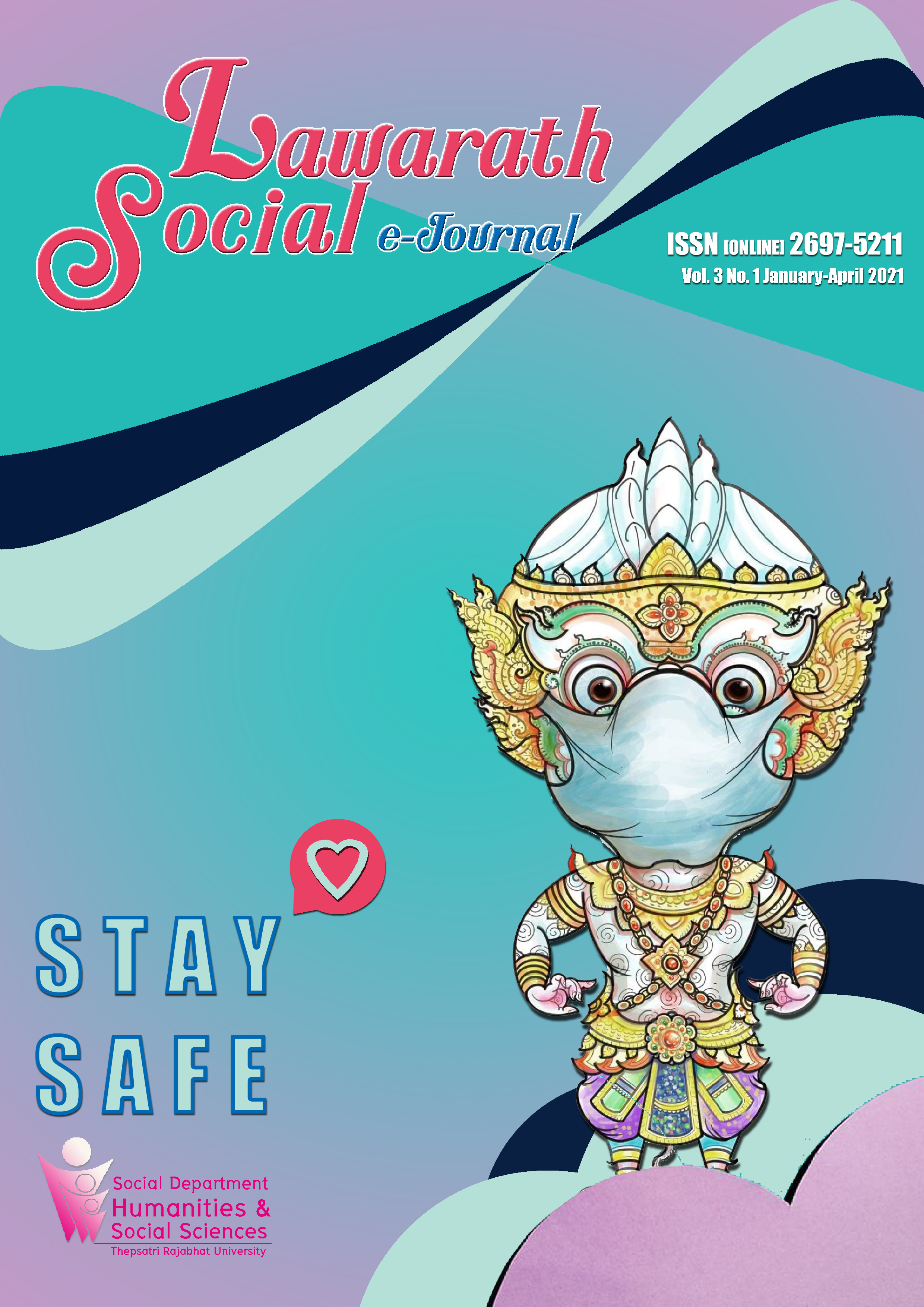The Development of the Entire Organization Quality Management in Sub-district Administrative Organizations in Mueang Phetchaburi District Phetchaburi Province
The Development of the Entire Organization Quality Management in Sub-district Administrative Organizations in Mueang Phetchaburi District Phetchaburi Province
Keywords:
Development, Total Quality Management, Sub-district Administrative OrganizationAbstract
This research aimed to 1) study the level of the Total Quality Management (TQM) of Sub-district Administrative Organizations in Mueang Phetchaburi District, Phetchaburi Province, 2) to study factors affecting the Total Quality Management of Sub-district Administrative Organizations in Mueang Phetchaburi District, Phetchaburi Province, and 3) to study the factors affecting the Total Quality Management with a causal relationship of the Total Quality Management of the Sub-district Administrative Organizations in Mueang Phetchaburi District, Phetchaburi Province. The sample used for this research was 138 personnel of the Sub-district Administrative Organizations in Mueang Phetchaburi District, Phetchaburi Province. Descriptive statistics used to analyze the data were percentage, mean, and standard deviation. In addition, Inferential statistics used to analyze the data were chi square and multiple regression analysis.
The results of the study were as follows. 1) The Total Quality Management of Sub-district Administrative Organizations in Mueang Phetchaburi District, Phetchaburi Province in overall was at high level as well as for each aspect. The high levels were in the following order: teamwork, continuous improvement, administrative leadership, customer service importance and process management. 2) Factors affecting the Total Quality Management of Sub-district Administrative Organizations in Mueang Phetchaburi District, Phetchaburi Province in overall were at high level. As for each aspect, it was at high level in the following order: communication, technology facility, corporate culture, and creativity. 3) Factors affecting the Total Quality Management with a causal relationship of the Total Quality Management of the Sub-district Administrative Organization in Mueang Phetchaburi District, Phetchaburi Province in creativity and corporate culture aspect showed a significant difference at the 0.001 level. According to communication aspect, there was a significant difference at the 0.01 level.
Downloads
References
จิตติมา ใจสุข. (2558). การวิเคราะห์ปัญหาการจัดการสโมสรวอลเลย์บอลในประเทศไทยโดยแนวคิด TQM. วิทยานิพนธ์ปริญญามหาบัณฑิต จุฬาลงกรณ์มหาวิทยาลัย.
ชิษณุพงศ์ ทองพวง. (2556). องค์ประกอบการบริหารคุณภาพทั่วทั้งองค์การของมหาวิทยาลัยเอกชนในประเทศไทย. วิทยานิพนธ์ปริญญาดุษฎีบัณฑิต มหาวิทยาลัยคริสเตียน.
นพวรรณ ศรีสวัสดิ์. (2556). ความสัมพันธ์ระหว่างการบริหารคุณภาพทั่วทั้งองค์กร (TQM) กับการพัฒนานวัตกรรมในอุตสาหกรรมอาหารสัตว์. วิทยานิพนธ์ปริญญามหาบัณฑิต มหาวิทยาลัยเกษตรศาสตร์.
นิกัญชลา ล้นเหลือ. (2554). โมเดลสมการโครงสร้างภาวะผู้นำเชิงวิสัยทัศน์ของผู้บริหารสถานศึกษาขั้นพื้นฐาน. วิทยานิพนธ์ปริญญาดุษฎีบัณฑิต มหาวิทยาลัยขอนแก่น.
ประพจน์ แย้มทิม. (2550). ความสัมพันธ์ระหว่างวัฒนธรรมองค์กรกับประสิทธิผลการจัดการศึกษาตามการรับรู้ของผู้บริหารและครูในสถานศึกษาขั้นพื้นฐาน. วิทยานิพนธ์ปริญญาดุษฎีบัณฑิต มหาวิทยาลัยรามคำแหง.
ภาวดี วิจิตรจันทร์. (2559). ปัจจัยที่ส่งผลต่อการบริหารคุณภาพทั่วทั้งองค์การ (TQM) ของสถานศึกษา สังกัดสานักงานเขตพื้นที่การศึกษาประถมศึกษาชัยภูมิ เขต 3. วิทยานิพนธ์ปริญญามหาบัณฑิต มหาวิทยาลัยมหาสารคาม.
สำนักงานคณะกรรมการพัฒนาระบบราชการ. (2558). เกณฑ์คุณภาพการบริหารจัดการภาครัฐ พ.ศ. 2558. กรุงเทพฯ: วิชั่นพริ้นท์ แอนด์ มีเดีย.
อนันต์ เตียวต๋อย. (2551). รูปแบบการบริหารคุณภาพแบบเบ็ดเสร็จในมหาวิทยาลัยเทคโนโลยี ราชมงคล. ดุษฎีนิพนธ์ปริญญาดุษฎีบัณฑิต มหาวิทยาลัยศิลปากร.
อลิษา สุคุณพันธ์. (2555). การบริหารแบบมุ่งคุณภาพทั้งองค์การที่ส่งผลต่อประสิทธิผลของสถานศึกษาสังกัดสำนักงานเขตพื้นที่การศึกษาประถมศึกษาจันทบุรี. วิทยานิพนธ์ปริญญามหาบัณฑิต มหาวิทยาลัยราชภัฏรำไพพรรณี.
Beebe, Steven A., Mottet, Timothy, P., &Roach, David K. (2004). Training &Development: Communicating for Success (2nd ed.). Texas: Pearson.
Cunningham, G. William, &Cordeiro A., Paula. (2003). Education Leadership: A Problem-Based Approach (2nd ed.). Boston: Pearson Education.
Deming, Edward W. (1982). Quality Productivity and Competitive Position. Cambridge: Massachusetts Institute of Technology, Center for Advance Engineering.
Green, S. B. (1991). How Many Subjects Dose It Take to Do a Regression Analysis? Multivariate Behavioral Research, 26(3), 499-510.
Guilfond, J. P. (1969). The Nature of Human intelligence. New York: Mcgraw Hill.
Moats, Scott H. (1997). The Relationship Between Organizational Culture and Organizational Effectiveness: Producing Pastoral Ministry and World Mission Major Graduates in Four Denominational Colleges. Doctoral Dissertation, University of Minnesota.



